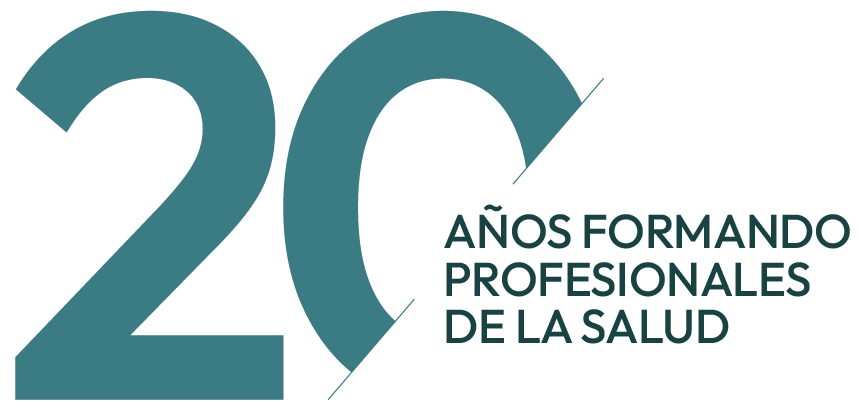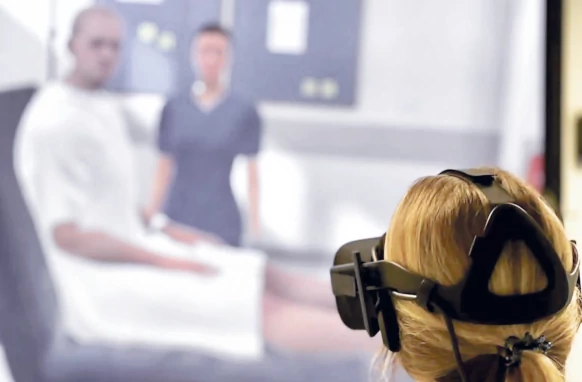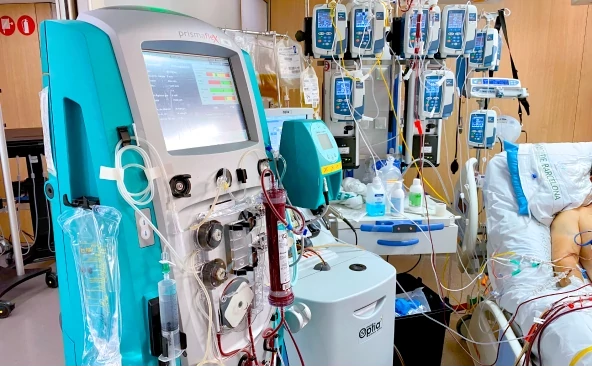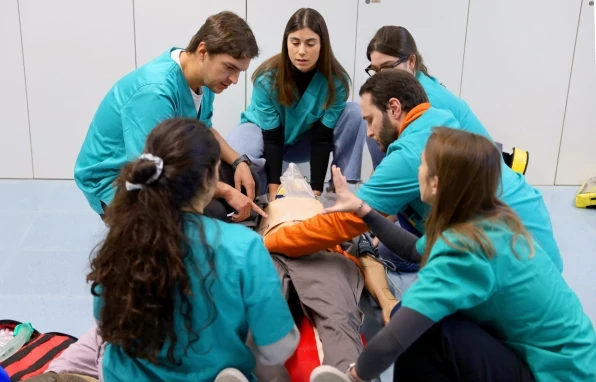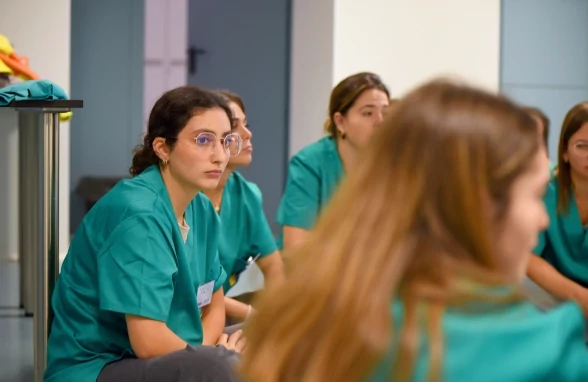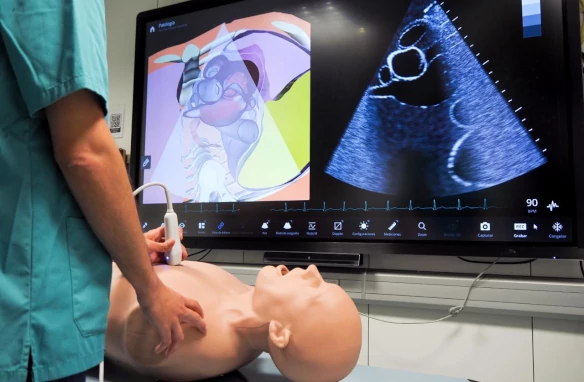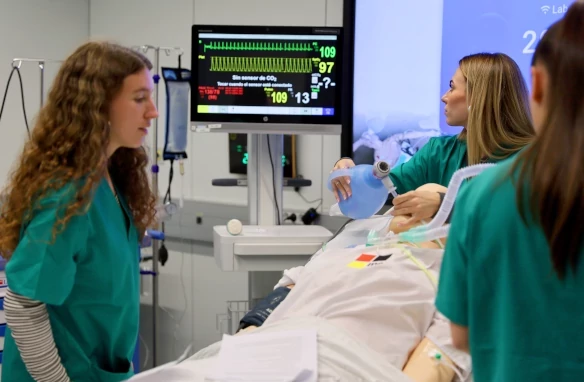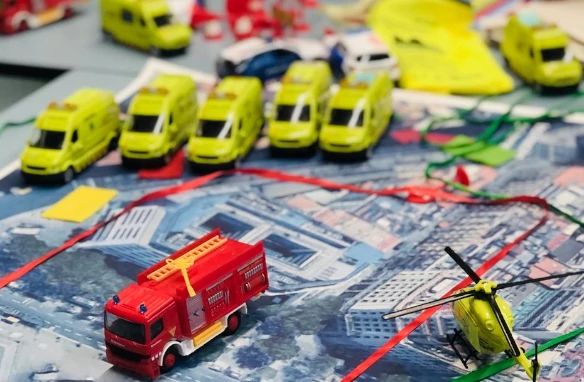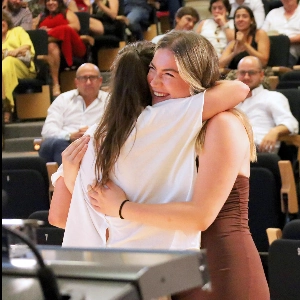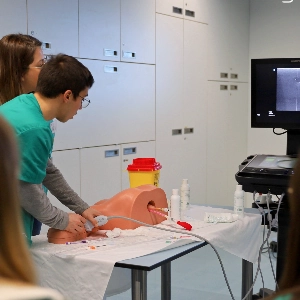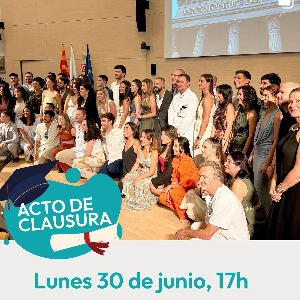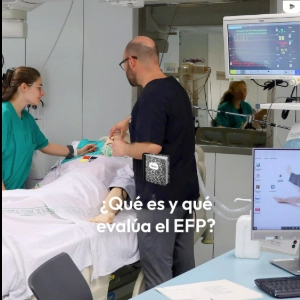Frequently asked questions
To better understand the Critical Care and Emergencies Master's, we have prepared a list of answers to your most frequent questions.
Admission Process
Admission Application
To request admission, on the Master's platform you must complete the Admission Form.
We will evaluate your application and respond within a maximum of one week. If accepted, we will send you the positive resolution with the link so you can complete your course pre-registration at the University of Barcelona.
Pre-registration Process
- To complete your pre-registration you must follow these steps:
Request pre-registration
- The link we sent you with the acceptance resolution of your admission opens the University of Barcelona pre-registration form, where you must complete your personal data.
Pre-registration payment
- When completing your pre-registration, an electronic payment document is issued (note the procedure number).
Registration Process
The steps to proceed with registration are:
- Once the documentation is verified, you will receive an email with the link for course registration. During registration, you will be assigned a University of Barcelona identification number (NIUB), an alphanumeric user code for subsequent access to the UB Student Portal (information and communication space with the University of Barcelona).
- When completing the registration, an electronic payment document is issued for the remaining total amount of the tuition (deducting what you paid for pre-registration). This amount is non-refundable.
- Now as a student you can check your payment status through the UB Student Portal.
- Once the tuition is paid, you can access the Master's academic content through its platform Moodle CampusVirtual UB.
Documentation
Applicants with a Spanish or EU degree
Once pre-registration is completed, to proceed with the registration process, you must send the following documentation to the Master's program (by email or postal mail):
- Photocopy of National Identity Document or Passport;
- Certified photocopy of the university degree (both sides) or document with electronic verification code.
It is recommended to first send the documentation by email to mce@ub.edu for validation. and subsequently by postal mail:
Secretaría Máster Enfermo Crítico y Emergencias.
Facultad de Medicina y Ciencias de la Salud. C/Casanova 143,
08036 Barcelona, España.
Facultad de Medicina y Ciencias de la Salud. C/Casanova 143,
08036 Barcelona, España.
Applicants with a recognized foreign degree
Once pre-registration is completed, to proceed with the registration process, you must send the following documentation to the Master's program (by email or postal mail):
- Certified photocopy of Passport or identity document;
- Certified photocopy or with electronic verification of the university degree and the document certifying the degree homologation.
It is recommended to first send the documentation by email to mce@ub.edu for validation. and subsequently by postal mail:
Secretaría Máster Enfermo Crítico y Emergencias.
Facultad de Medicina y Ciencias de la Salud. C/Casanova 143,
08036 Barcelona, España.
Facultad de Medicina y Ciencias de la Salud. C/Casanova 143,
08036 Barcelona, España.
Pre-registered with non-homologated foreign degree
Pre-registered applicants must send the following information to the Master's program:
- Photocopy of Passport or National Identity Card
- University degree or certification accrediting its issuance (original or certified copy or authentic copy with secure verification code).
- Authorization request duly completed: Course authorization request
- Responsible declaration stating possession of the provided degree, that the provided data are truthful, and authorizing, if necessary, their verification: Responsible declarationstating that you are in possession of the submitted degree and that the data is truthful, authorizing its verification if applicable.
It is recommended to first send the documentation by email to mce@ub.edu for validation. and subsequently by postal mail:
Secretaría Máster Enfermo Crítico y Emergencias.
Facultad de Medicina y Ciencias de la Salud. C/Casanova 143,
08036 Barcelona, España.
Facultad de Medicina y Ciencias de la Salud. C/Casanova 143,
08036 Barcelona, España.
Payment Methods
What is the price of the master's program?
The total price is 10,400€: 5,400€ for the first year and 5,000€ for the second. To this, 70€ per academic year must be added for university fees. It includes all teaching materials, issuance of master's certificates and degrees, as well as the courses you may take (BLS+AED, ALS, ATLS, PALS, MCCR, FCCS, ECMO, TECC, PHTLS…).
Can I pay the tuition fee in installments?
Yes, it is possible to make the annual payment in two installments, one in September and the second in January. You must request this before completing the pre-registration.
What payment methods are available?
The University of Barcelona offers the following payment methods:
- Online payment: via credit or debit card.
- Payment at the offices of the collaborating banks: printing the pre-registration receipt and making the payment.
- By invoice: requesting it from the master's secretariat before paying the pre-registration.
If I ultimately don't take the course or have to leave it, can I request a refund?
According to the academic regulations of the University of Barcelona, it is not possible to refund the amount paid for a program. The only exception is in the case of serious illness (considered a force majeure).
Still have questions?
Write to us at mce@ub.edu and we will help you.
Information for companies
This master's is subsidized through Fundae,
the State Foundation for Employment Training.
General questions
Is it an official master's degree?
It is a master's degree with its own lifelong learning certification, awarded by the University of Barcelona and the Autonomous University of Madrid.
When does the master's program start?
The master's program usually starts at the beginning of October and runs until early July of the two academic years.
Can I work while studying for the master's?
Yes. Most of our students work, so the schedules for in-person activities can be chosen by the student. For example, workshops and simulation cases are offered on various days and times, so each student can attend at the time and day that best suits them. The estimated weekly study load is about 15 hours per week (depending on the time of year).
Can this course be taken by doctors without specialization?
Yes, the only requirement to access the master's program is to have a degree/diploma in medicine or nursing. Other health science professionals such as kinesiologists, physiotherapists, biomedical scientists, etc. can also apply.
Does it qualify as a master's degree for students with foreign degrees from Latin America?
Yes, having 120 ECTS credits in Latin America is recognized as a master's degree.
Is the master's program online?
No, the only module that is 100% online is Module I “Theoretical Knowledge.” The rest of the modules have both online and in-person parts (simulation cases, workshops, clinical rotations…).
Can any module be validated?
Module 1 can be validated if the Postgraduate Course in Foundations of Critical Illness and Emergencies or Foundations in Critical Medicine and Intensive Therapy has been completed. Also, the clinical practices in general ICU and pre-hospital care carried out in Module 4 “Practicum” can be validated if previous experience is accredited.
Is the master's program counted in all regional merit systems in Spain?
We do not have this information because the point system process differs in each region. We have students from all over Spain, so we believe it counts in most regions, but it is recommended to consult the specific merit system (it also varies between institutions).
When does pre-registration close?
When the offered places are filled. It is a highly demanded master's program, but we offer about 200 places (between the Barcelona and Madrid sites), and almost everyone who applies is able to enroll.
Can the master's program be completed in more than 2 years?
Yes, although we do not recommend extending it beyond 4 years to take full advantage of the contents that are complemented in the different modules and to keep the previous courses fresh.
Is it advisable to take the master's program right after finishing a nursing/medicine degree?
Initially, the master's programs were designed for students who already had some work experience, and this one was no exception. However, in recent years, the trend has changed, and they are usually taken right after finishing the degree. We recommend it because we believe it provides a general overview that can help you specialize in the area of critical care that interests you the most.
What is the official language of the master's program?
All classes are taught in Spanish, although, exceptionally, some reading materials may be required in English (scientific articles or manuals for the courses).
Still have questions?
Write to us at mce@ub.edu and we will help you.



